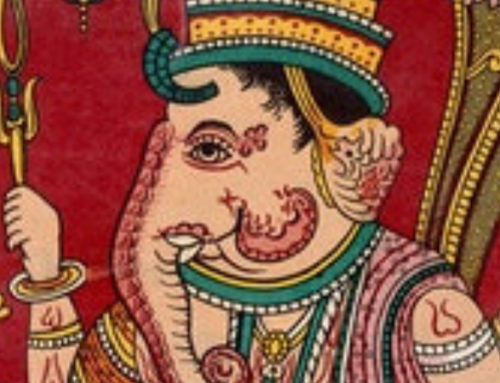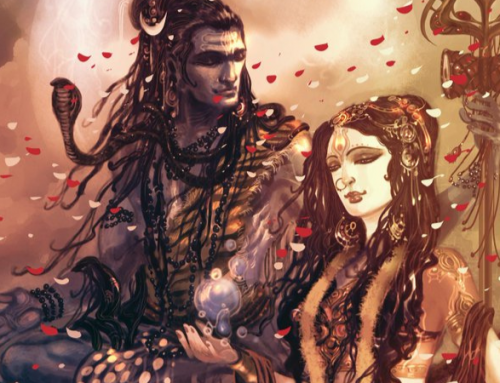New Aghoras Out Now! And More Updates
Lots of news for this letter, which I will commence with our arrival in Guwahati, where I felt fortunate to have been able to salute Ma Kamakhya. The relatively laid-back environs thirty years ago there (my last visit to that temple) have been replaced with a gauntlet of complicated Tirupati-like queues that must now be walked for at least a couple of hours (even with a VIP ticket) before one can reach the sanctum. The resultant darshan is, however, as superb as ever.
Four hours east of Guwahati is Kaziranga, India’s national park that hosts the world’s largest population of the Asian one-horned rhinoceros (at last count, 2405), an inexplicable animal. On land, it sports the semblance of an armored equine, nostrils larger than eyes; on water, it is like unto a hippo. Head bent downward to graze, the outlines of a human skull are clearly visible atop its face, and I couldn’t avoid the thought that this perhaps was one reason that ancestor worship (shraddha) with a rhino offering is mentioned in the Mahabharata.
I’ve always found it curious that unlike India’s other megafauna the rhino has gained the status neither of deity, like Ganesha the part-elephant or Anjaneya the langur, nor of deity-carrier (vahana) like the lion, tiger, eagle, and even donkey and crocodile. Even the wild buffalo made it into the astral big leagues as Mahishasura, slain by Durga. Seeing his powerfully “buff” descendants in the park it was so clear to me how far from a lumbering water buffalo was the mighty Mahishasura.
And what a giant of a monitor lizard we there saw! Bundle together a dozen standard adult tropical iguanas and you will get some idea of the Komodo dragon-like monster that riveted our attention, thirty feet up on an identically-hued branch. It then became clear to me how Tanaji Malusare could have climbed up to the Sinhagad fort using the Yashwanti ghorpad and a rope.
We had flown to Assam direct from the Jaipur Literary Festival, said to be the biggest of its kind in the world. The event provided excellent opportunities to schmooze with other wordsmiths and hear them speak, and to get to know various unusual characters from around the country and the world. I appeared twice there, as a panelist discussing first Ayurveda in the modern world and then the significance of Saturn, and had I had a few minutes more available to me during the latter presentation I would have expressed my thanks to Shri Shanishvara for recently answering a question that had been nagging at me for more than a quarter of a century.
In The Greatness of Saturn King Vikramaditya is sped away to meet his destiny on the back of a horse named Akhlaq (in the Gujarati version) or Ablaq (in the Marathi version). Back when I was translating the story no one I knew could offer me a translation of that word, and I lacked the presence of mind to consult a speaker of Arabic, so I settled on Akhlaq and moved on.
A couple of months back, though, it occurred to me to approach the internet, where lo! I located both words:
Mash’Allah! And while a case could be made for either (Saturn rules rock and masonry, and as son of the Sun and Shadow symbolizes light’s eternal association with darkness), I think Akhlaq is the better choice, for it was King Vikrama’s dedication to good conduct that precipitated the tribulations whence he eventually emerged de-scathed.
The Greatness of Saturn would never itself have come my way, of course, had it not been for my association with Shri Vimalananda, and so it is with great satisfaction that I hereby announce the release of the second editions of the Aghora trilogy.
Replete with new introductions to each volume, new appendices (including information about Junior Guru Maharaj), and new covers (thank you Satya Moses!), these new versions usher Vimalananda and his world into the 21st century. I am profoundly grateful to Satya, his dependable, diligent and ever-hospitable parents Robert and Meenakshi, and my dear friend and media manager Paula Crossfield for working to make this new edition a reality.
May Vimalananda’s words benefit all sentient beings! Om namah sivaya!


